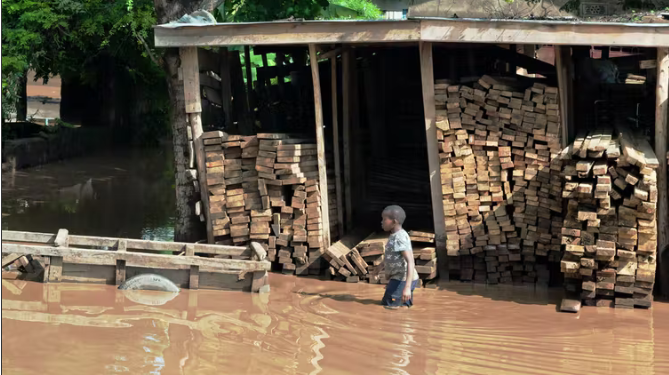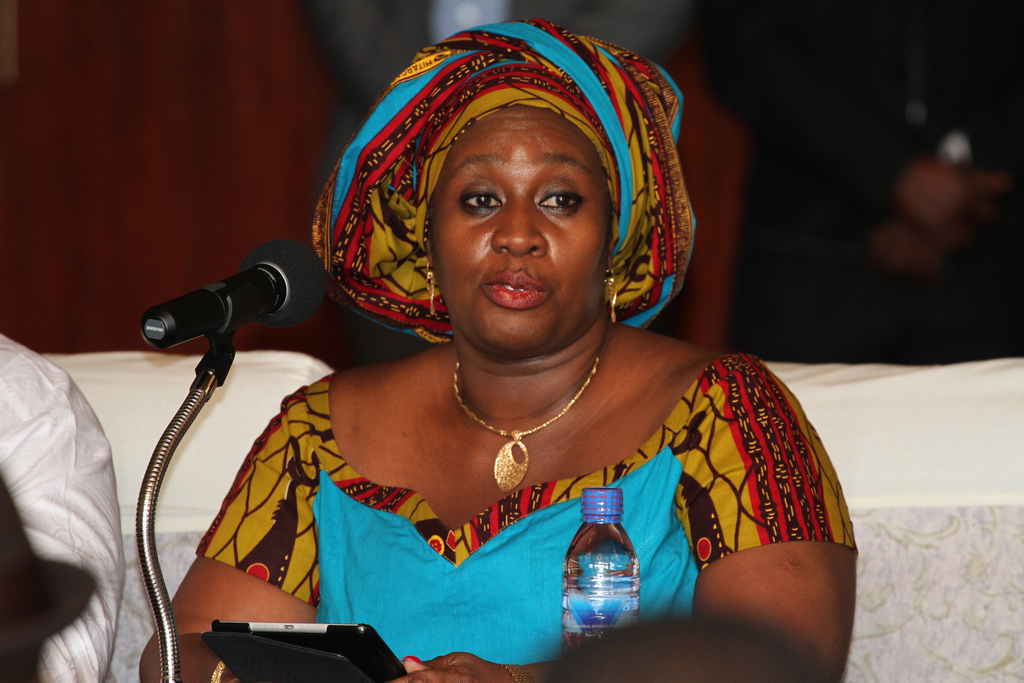Floods are the second most prevalent and devastating natural disasters in sub-Saharan Africa. Between 2000 and 2019 floods accounted for 64% of all disaster events in the region. They affected the livelihoods of about 53 million people and killed more than 14,000. Sierra Leone, Ghana, Nigeria, Gabon, the Democratic Republic of Congo and Mozambique were hit severely over this period.
Policies and strategies to confront the increasing flood frequency and deaths on the continent are on international, regional and national agendas. Most of these documents acknowledge that information is an important resource for flood preparedness. The recent World Disaster Report, for example, states that the impact of floods has reduced in some parts of the world because the general public obtained useful information about the risk and acted on it.
Mass information campaigns through radio, TV, newspapers, audio vans and weather reports have been ramped up globally in the past decade to improve flood disaster awareness. Such efforts are premised on the idea that people’s ability to prepare depends on getting the right information about the flood. They need to know – in clear language, at the right time – what might happen and when, and what they can do.
Unfortunately, it appears that efforts in flood risk communication haven’t always helped the general public to prepare better.
Ghana’s government conducts flood education campaigns annually before the rainy season. But in the country’s flood-prone informal settlements, where about 62% of the urban population reside, floods still have devastating consequences. In one of the most recent floods in the Greater Accra region in June 2015, one-third of the 152 fatalities were within or around informal settlements.
The research
Our study set out to investigate the effect of community participation in strengthening the relationship between disaster risk information dissemination and disaster preparedness. We chose three flood-prone communities (Old Fadama, Nima and Kotobabi) in Accra, Ghana’s capital city. We developed a model to test whether communities prepared better for flood disasters when they have been involved in communicating information. The study was undertaken a few months after the June 2015 disaster.
Our study showed that information that is accessible, comprehensive, and tailored to the needs of flood-prone populations strongly influences intentions to prepare. But this is only when city authorities make it possible for the public to get clarity and support to act on the information.
This insight shows how disaster management professionals and policy makers can integrate the cultural, social and value systems of a community into the communication process. Risk should be clearly communicated in languages that are understood locally and information must be channeled through traditional and community institutions.
Flooding in Accra
When people move to Accra, they usually start by living in an informal settlement. Most of these areas are flood-prone because houses are built on flood plains with non-durable materials.
The government carries out educational campaigns on radio, TV and other media through the National Disaster Management Organisation, Ghana Meteorological Agency and National Commission for Civic Education. These campaigns talk about the type of hazard, areas to be affected, potential damage and in some cases preventive measures. But they don’t involve the active participation of the public.
There’s a need to revisit this one-way information flow, and instead encourage dialogue between experts and the public. This could happen when public authorities build a good relationship with communities. A sustained relationship builds trust. This could in turn give communities the confidence to share experiences of their response to floods.
Our study results showed that providing flood information to the public instigates discussions among community members but has little impact on preventive action. It’s more persuasive when the public is actively engaged in discussions with experts on flood risk preparedness. This should be on transparent and open platforms where experts readily address people’s doubts and uncertainties.
The study revealed that regular engagement between experts and the public is an opportunity to clarify messages, seek additional information and build trust. This can influence positive behavioural changes in terms of flood preparedness.
Participatory disaster risk communication
The risk of climate-related disasters worldwide is growing, especially in developing regions. To build local resilience, disaster management experts and policymakers must make community participation the core element of risk communication to the public.
Our study showed that the level of community participation matters when it comes to disaster preparedness. When people get information in an engaging and interactive manner, their behaviour changes in positive ways. As one respondent quipped:
Give me more information but also seek my views and experiences; then I will act.
The public shouldn’t just receive information but take an active part in what is communicated and how, so that it is useful in their local circumstances.![]()
Matthew Abunyewah, Sessional lecturer, School of Architecture and Built Environment, University of Newcastle; Kim Maund, Discipline Head – Construction Management, School of Architecture and Built Environment, University of Newcastle; Seth Asare Okyere, Assistant Professor, Graduate School of Engineering, Osaka University, and Thayaparan Gajendran, Associate Professor, School of Architecture and Built Environment, University of Newcastle
This article is republished from The Conversation under a Creative Commons license. Read the original article.











